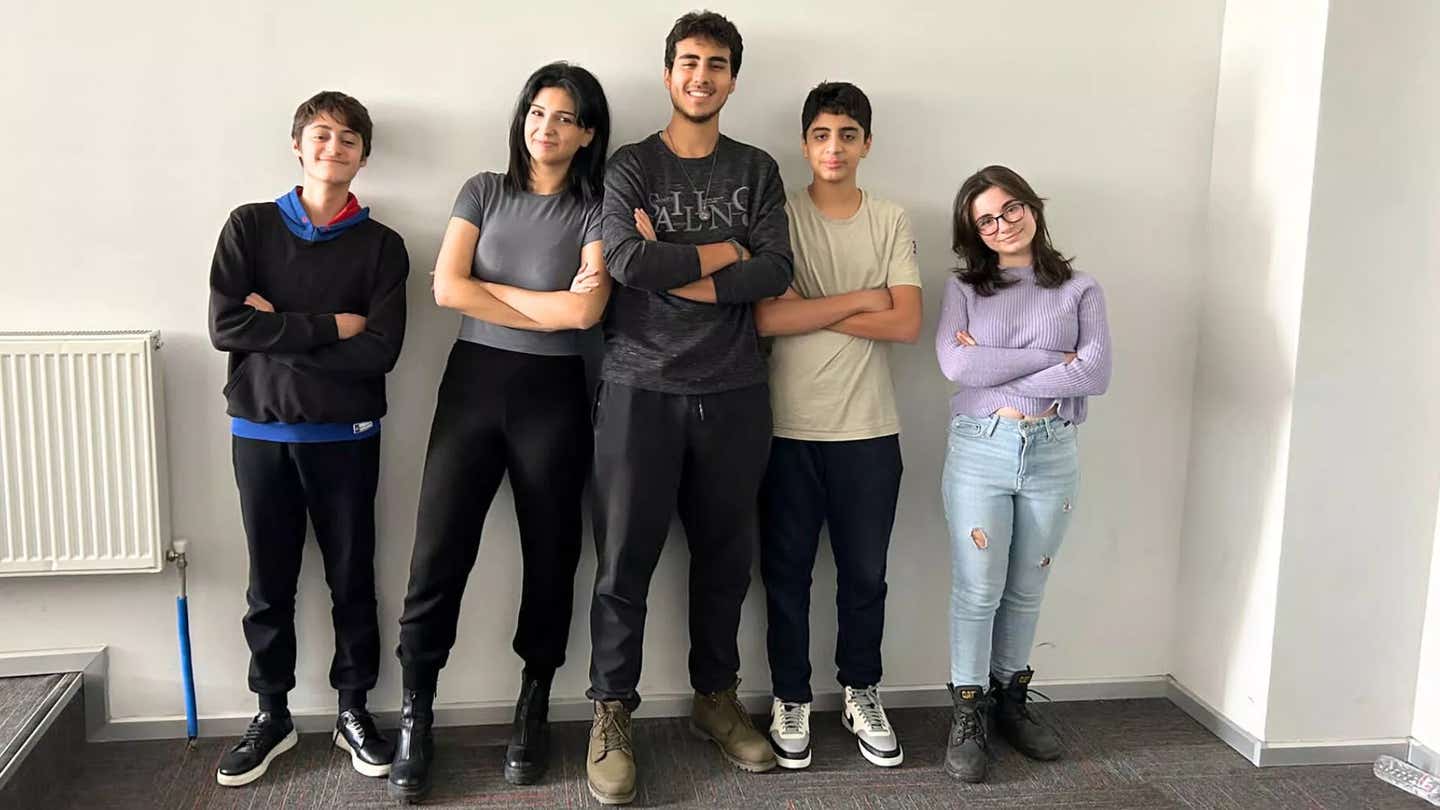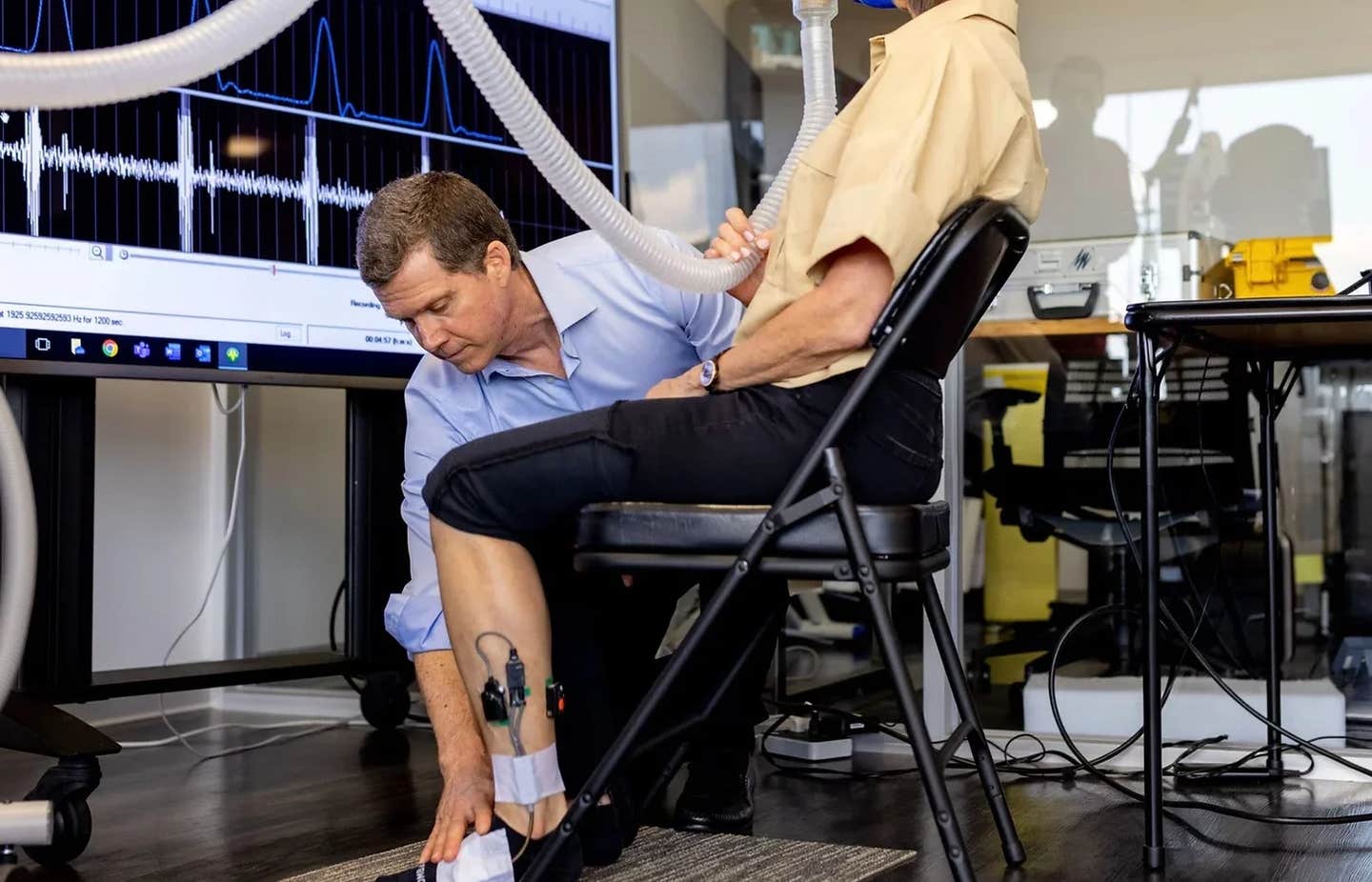Fed-up Turkish teens channel their rage about climate change into solutions
If this problem got enough attention from much bigger authorities, it could be solved – that is the part people are angry at.

These teenagers from Türkiye earned runner-up honors for The Earth Prize with their affordable and rapid solution to combat crop failure. (CREDIT: Beyza Kaya)
Beyza, a 17-year-old runner-up of The Earth Prize, draws her inspiration from the community around her. "My community is my inspiration," she says, reflecting on the pressing issue of climate change that affects her homeland, Türkiye. Once part of Mesopotamia, a cradle of civilization, this region now grapples with the harsh realities of climate change and drought.
In contrast to many young activists who take to the streets demanding climate action, Beyza chose a different path, one grounded in science. Along with her 18-year-old colleague Diyar, she has developed a “drought-defying plasma-powered crop solution” to combat these challenges. Diyar, who works closely with Beyza, expresses frustration at the lack of substantial action by major governments.
"It’s not good to watch when the big governments can solve these issues - but we are trying to do that and not them," he explains. Recognizing that they cannot change the climate itself, they have focused on mitigating its effects. "If this problem got enough attention from much bigger authorities, it could be solved - that is the part people are angry at."
Together with their peers in Team Ceres, Beyza and Diyar entered their solution into The Earth Prize, a global competition that encourages environmental sustainability among students by offering mentorship and funding for innovative ideas.
During a video call, Beyza reveals the 'Plantzma' prototype from her bedroom wardrobe, showcasing the ingenuity of these young inventors.
The concept of Plantzma was born out of the agricultural struggles observed in their community and among their families. "Our idea for Plantzma originated from the agricultural challenges we observed in our community and family," says Beyza.
Many in their region, where resources such as education are limited, depend on agriculture for their livelihood. However, they face significant challenges due to drought and crop failure. A 40% decline in precipitation has led to an 80% crop loss, devastating the agricultural sector.
Related Stories
The issue of crop failure is not isolated to Türkiye. According to the World Economic Forum, the probability of crop failures globally could increase by 4.5 times by 2030 and 25 times by 2050. This not only jeopardizes food security but also leads to overuse of fertilizers, which exacerbates pollution and soil degradation.
In response to these challenges, Beyza and her team created Plantzma, a device designed to make crops more resilient and improve irrigation water. The device, priced at approximately $195, can reduce crop loss by up to 60% and decrease the need for expensive fertilizers by 40%, according to estimates from Team Ceres. "When we interviewed farmers, they were happy to hear about this product," Beyza says. The device is user-friendly, requiring just a few button presses to operate.
But what exactly is plasma, and how can it help farmers? Plasma, often referred to as the fourth state of matter alongside solid, liquid, and gas, is "essentially supercharged ionized air," Diyar explains. The superheated particles in plasma possess so much energy that electrons separate from their atoms, making it an excellent conductor of electricity. While plasma is rare on Earth, it is abundant in space. To create plasma, you need a gas such as air, a discharge system with electrodes, and a voltage system.
Beyza's interest in plasma was sparked by her fascination with exoplanets. "I thought about using plasma because I was into exoplanets," she recalls, citing her extensive reading of NASA's articles, which explore the wide-ranging applications of plasma.
The Plantzma device employs low-temperature plasma in two primary ways. First, seeds are treated with plasma before cultivation, which improves their germination rate and growth potential by creating nano-cracks on their surface. This process increases the seeds' resistance to diseases, drought, and other environmental stressors.
Second, the device treats irrigation water with plasma, enriching it with properties that benefit plant growth. This process transforms the water into an environmentally friendly, nitrogen-enriched plasma fertilizer that supplies essential nutrients to plants and stimulates fruit and vegetable growth.
Team Ceres is determined to make their plasma technology widely accessible, particularly in rural communities. "The solution can be implemented anywhere in the world where agriculture is prevalent, including many places that don’t have access to modern technologies," Beyza says. However, to turn this vision into reality, they are seeking funding to further develop their idea and eventually expand it internationally.
As Diyar prepares to major in electrical engineering at NYU Abu Dhabi, Beyza hopes to pursue studies in environmental engineering and political science. Her anger about climate change extends beyond environmental concerns, touching on broader economic implications.
"I feel angry about climate change because, as you know, it is not just related to the environment, it is mostly related to the economy… and I'm angry towards the future, thinking about, ‘Are our water resources enough for us? And are we going to be able to mitigate the effects of climate change in our region?’" she reflects.
Beyza envisions a future where she can work at the United Nations, addressing the lack of environmental policies in underdeveloped and developing countries, where climate change poses a significant challenge. "When we invent something, making it really accessible and changing environmental policies are really important for these vulnerable communities," she emphasizes.
Through their innovative work, Beyza and her team are not just confronting the effects of climate change but are also paving the way for sustainable solutions that could benefit communities around the world.
Note: Materials provided above by The Brighter Side of News. Content may be edited for style and length.
Like these kind of feel good stories? Get The Brighter Side of News' newsletter.
Rebecca Shavit
Science & Technology Journalist | Innovation Storyteller
Based in Los Angeles, Rebecca Shavit is a dedicated science and technology journalist who writes for The Brighter Side of News, an online publication committed to highlighting positive and transformative stories from around the world. With a passion for uncovering groundbreaking discoveries and innovations, she brings to light the scientific advancements shaping a better future. Her reporting spans a wide range of topics, from cutting-edge medical breakthroughs and artificial intelligence to green technology and space exploration. With a keen ability to translate complex concepts into engaging and accessible stories, she makes science and innovation relatable to a broad audience.



